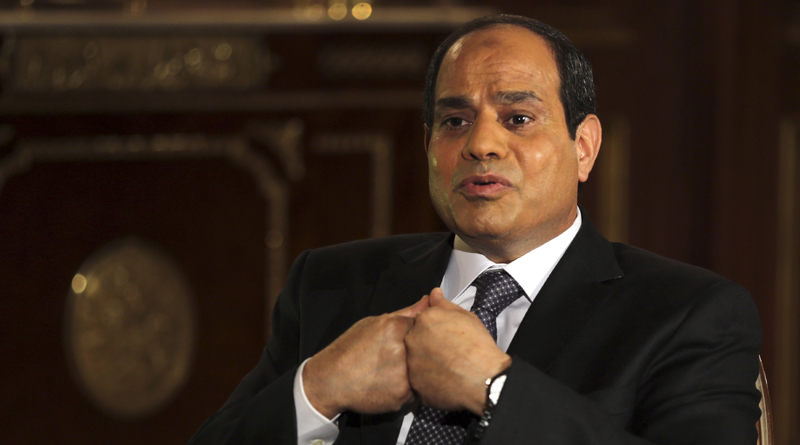Tourism Minister Hisham Zaazou revealed that he attended a meeting with President Abdel-Fattah El-Sisi aimed at discussing means of restoring tourism to Egypt and eliminating all obstacles facing Egyptian tourism.
Sisi asserted the need to reactivate the Supreme Council for Tourism under his own supervision to find swift solutions to the problems of tourism and accelerate the holding of the council meeting, which includes a large number of ministries concerned, he said.
Meanwhile, Mohamed Abdel-Gabbar, the head of the International Tourism Sector, said that Zaazou considered the approval of the president to attend the council very important, especially since the state has become interested in tourism and put it on its agenda. The council has been activated more than once since its establishment, but to no avail, he added.
In the previous ministry, the council was restructured at the request of Zaazou and Elhamy Al-Zayat, the head of the Egyptian Federation of Chambers of Tourism.
For his part, Zayat stressed that investors and tourism makers are clear as regards the need to accelerate the return of tourism, which cannot happen without reaching quick solutions to the accumulated problems of tourism since the outbreak of the revolution five years ago. The idea of restructuring the Supreme Council of Tourism, headed by the president, will have a positive effect and real solutions to the problems of tourism will be found, especially since the problems will be presented to the ministries concerned before going to the president personally.
Zayat said it was essential that the council convenes on a regular basis to study the tourism situation and all issues related to the sector and to stress on not making any decisions that may affect the tourism system by any party other than the Supreme Council.
Ahmed Balbaa, the chairman of the Tourism Committee at the Association of South Sinai Investors, said that tourism investors filed a formal appeal to President Sisi on the need to place tourism within the main priorities of the state, especially since the tourism industry must be the main locomotive of the national economy because it is Egypt’s hope. The investors stressed that the sector’s problem is not taking its opinion in the sovereign decisions that affect its activities and this leads to the reversal of decisions taken afterwards, especially since tourism always suffers from decisions taken without prior coordination.
Nasser Turky, the chairman of Committees of Arab Tourism and Communication at the Egyptian Federation of Chambers of Tourism, pointed out that the current government has broad powers in terms of issuing new legislations that benefit the Egyptian economy in general and tourism in particular, which makes use of the private sector for guidance only. Therefore, Prime Minister Sherif Ismail has given attention to re-opening this file at the request of Hisham Zaazou and submitting it to President Sisi who approved to follow it up personally, which is a good step toward restoring tourism.
Prime Minister’s decision No. 634 for 2014 on restructuring the Supreme Council for Tourism
After reviewing the amended constitution issued on 18 January 2014; and Presidential Decree No. 712 for 1981 on organising the Ministry of Tourism; and the decision of the president of the Supreme Council of the Armed Forces No. 252 for 2011 on the restructuring of the Supreme Council of Tourism; and the decision of the President of the Republic No. 72 of 2014 on the formation of the cabinet; and based on what has been presented to the Minister of Tourism and after the approval of the Cabinet (Article I) the Supreme Council of Tourism has been restructured under the prime minister, comprising the commander in chief of the Armed Forces and the minister of defense and military production as members.
The council includes the ministers of tourism, interior, communications and information technology, transport, trade, industry and investment, antiquities, culture, planning and international cooperation, local and administrative development, foreign affairs, state for environment affairs, education, youth and sports, higher education and scientific research, manpower and immigration and civil aviation and the head of the Egyptian Federation of Chambers of Tourism and four experienced figures to be selected by the tourism minister.
The council may invite to its meetings any minister other than its members or governors when probing issues related to their ministries or governorates. It can also invite any experts in the field of tourism other than its members.


